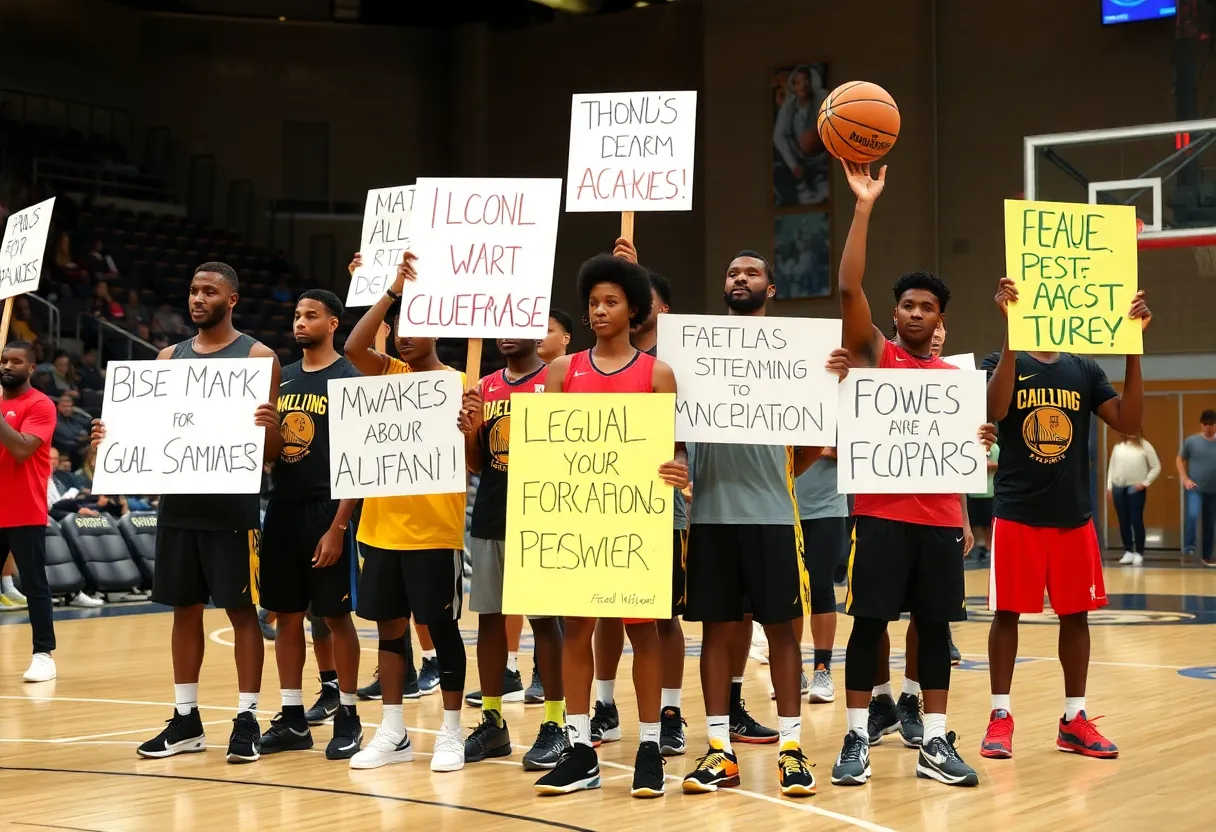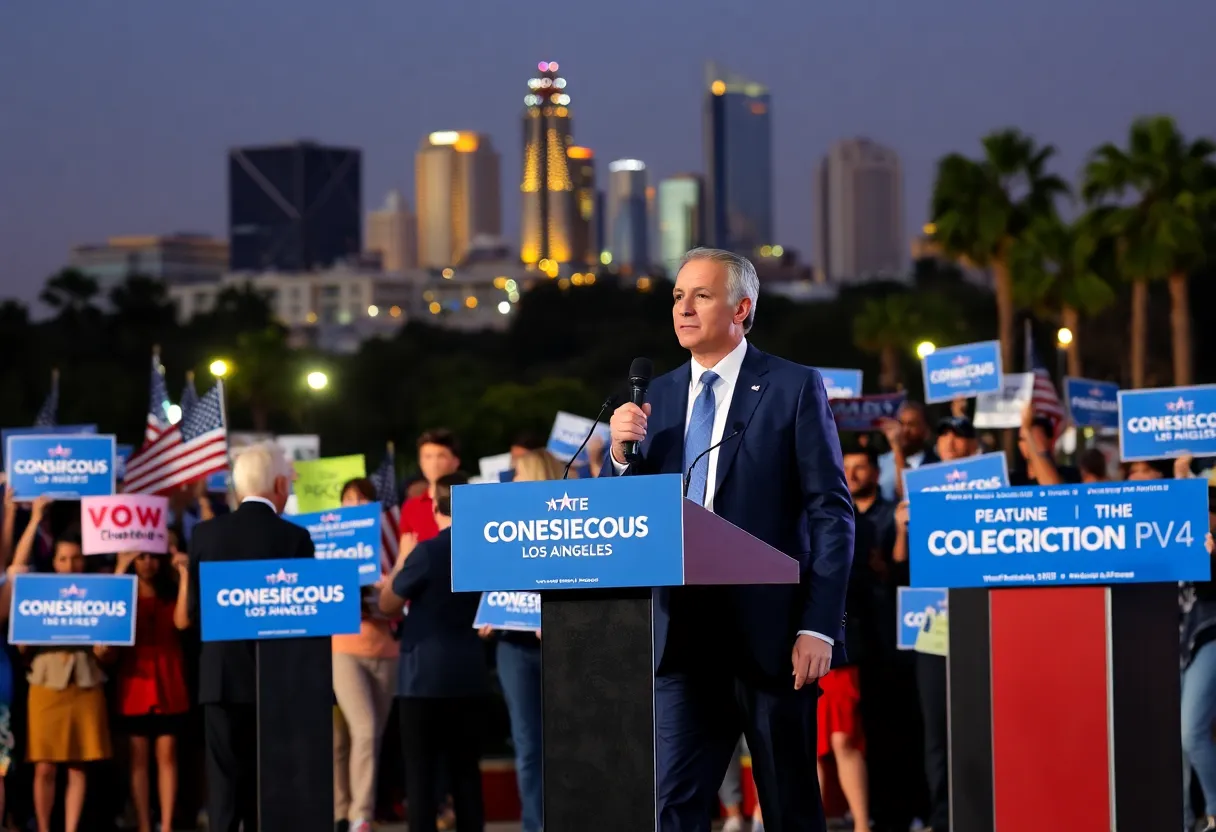News Summary
WNBA players are advocating for better salaries and revenue sharing as they negotiate their collective bargaining agreement. Led by prominent voices like Angel Reese, players protested during the All-Star Game, calling attention to their demands for fair compensation. The average WNBA salary is significantly lower than that of players in other leagues, raising concerns about equity. With critical negotiations underway, the outcome could set a precedent for future players seeking equitable treatment in professional sports.
Chicago – Professional basketball players in the Women’s National Basketball Association (WNBA) are pushing for improved salaries and equitable revenue sharing as they engage in ongoing collective bargaining agreement (CBA) negotiations. Recently, Chicago Sky forward Angel Reese has emerged as a prominent voice in this movement, highlighting the players’ commitment to securing fair pay.
In a recent demonstration during the All-Star Game, players showcased their demands by wearing shirts emblazoned with the phrase “Pay Us What You Owe Us.” This gesture came as part of a larger protest calling for higher salaries in a league where the average earnings are approximately $147,745, the lowest among the six major professional sports leagues in the United States. In stark contrast, Major League Soccer (MLS) players earn an average of $594,000, while players from the National Basketball Association (NBA), National Football League (NFL), and National Hockey League (NHL) enjoy average salaries ranging from $13 million to over $51 million due to revenue-sharing agreements.
The current climate of dissatisfaction stems from a reported $40 million loss incurred by the WNBA last year. This financial setback has led league officials to approach player salary increases cautiously. Furthermore, WNBA players currently receive less than 10% of the league’s total revenue, raising concerns among players regarding the fairness of their compensation compared to their male counterparts.
Reese, who has previously threatened a lockout, has emphasized the importance of the players’ collective fight for what they believe they deserve. The determination among the players was evident during recent negotiations, where around 40 athletes met face-to-face with WNBA officials to discuss potential salary structures and revenue sharing options. Reese has committed to educating herself and her fellow players on these issues, illustrating the players’ proactive approach in advocating for their rights.
The financial disparities are further magnified when examining the differences in salary structures between leagues. While the WNBA’s compensation is tied to “excess revenue” that is only paid out when the league meets specific revenue targets, the MLS distributes 25% of surplus revenue to its players regardless of performance measures. The CBA negotiations currently underway are critical, moving toward a deadline of October when a potential player walkout could be on the table if an agreement cannot be reached.
Throughout the season, WNBA players have been vocal in their demands for better treatment, particularly during pivotal moments like the All-Star Game, where fans showed support as players warmed up and during the MVP award presentations. This kind of solidarity among players reflects a broader movement toward equity not just in wages but also in recognition and respect for their contributions to the sport.
WNBA commissioner Cathy Engelbert has characterized recent negotiations as “constructive,” illustrating that conversations are still ongoing, though she acknowledges more dialogue is needed to address the players’ concerns fully. With reported plans for league expansion—potentially adding three new teams and a lucrative $2.2 billion media deal—there remains a glimmer of hope for players that improvements in salary and overall conditions could soon follow.
As the WNBA continues to grow and gain visibility, the current landscape of player compensation and equity is increasingly under scrutiny. The outcome of these negotiations will not only affect the current roster of players seeking fair salaries but will also set a precedent for future generations of athletes striving for equitable treatment in the professional sports arena.
Deeper Dive: News & Info About This Topic
HERE Resources
Indiana Fever Signs Chloe Bibby on Short-Term Contract
WNBA Players Demand Higher Salaries and Fair Revenue Share
Additional Resources
- WAPT: WNBA Salaries Compared to Other Leagues
- Newsweek: Angel Reese Sends Clear Message on WNBA Salary Negotiations
- Times of India: ‘We Are Underpaid’ – Stephen Curry Sparks Salary Debate
- New York Times: WNBA CBA Negotiations and Player Salaries
- The Guardian: WNBA Players Say They’re Not Paid What They’re Owed
- Wikipedia: WNBA
- Google Search: WNBA salary negotiations
- Google Scholar: WNBA salary disparities
- Encyclopedia Britannica: Women’s National Basketball Association
- Google News: WNBA salary
Author: STAFF HERE LOS ANGELES WRITER
The LOS ANGELES STAFF WRITER represents the experienced team at HERELosAngeles.com, your go-to source for actionable local news and information in Los Angeles, Los Angeles County, and beyond, specializing in "news you can use" with coverage of product reviews for personal and business needs, local business directories, politics, real estate trends, neighborhood insights, and state news affecting the area—with deep expertise from years of dedicated reporting and strong community input, including local press releases and business updates, while delivering top reporting on high-value events like the Academy Awards, LA Auto Show, and Los Angeles Marathon, extending coverage to key organizations such as the Los Angeles Area Chamber of Commerce and the Los Angeles Tourism & Convention Board, plus leading businesses in entertainment and technology like Warner Bros. and SpaceX, and as part of the broader HERE network including HEREAnaheim.com , HERECostaMesa.com , HEREHuntingtonBeach.com , and HERESantaAna.com , providing comprehensive, credible insights into Southern California's dynamic landscape. HERE Anaheim HERE Beverly Hills HERE Coronado HERE Costa Mesa HERE Hollywood HERE Huntington Beach HERE Long Beach HERE Los Angeles HERE Mission Viejo HERE San Diego HERE Santa Ana





